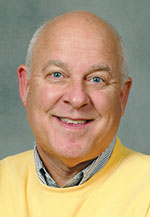Ken’s 12-Pack / Ken Ogorek
Things most Catholics wish they knew better: ‘Don’t judge me!’

11th in a yearlong catechetical series
One of Stephen Covey’s 7 Habits of Highly Effective People is “begin with the end in mind.” Sadly, the end times were underemphasized in catechesis during the 1970s and 1980s.
The 4 Last Things
Death. Judgment. Heaven. Hell. Not exactly the most popular cocktail party conversation topics.
But a life oblivious to the afterlife runs a risk of erring to the side of gaining the world but losing your soul.
Due to documented doctrinal deficiencies in religious education from the late 1960s through the early 1990s, many adult Catholics (and the kids they’re struggling to raise amid our current faith-hostile culture) might be confused about how our earthly pilgrimage relates to our eternal destiny.
“We’ve got a kingdom to build!”
An old friend of mine has a way of ending conversations when he feels we’ve spent enough time talking about faith without acting on it. He says, “We’ve got a kingdom to build!”
Granted, we should work to manifest God’s kingdom as fully as it can be experienced this side of heaven. That said, it’s important to note that the kingdom of God won’t be fully realized until the end of the age—the end of time as we know it.
Any political campaign, any economic initiative will only go so far in bringing about heaven on Earth. Because this is Earth, not heaven. Life as we know it is a foretaste of eternal life.
Aw, hell!
Most folks acknowledge the reality of heaven. The reality of hell, though, is less comfortable to admit.
Jesus clearly acknowledged the danger of ending up eternally separated from God, including all things good, true and beautiful. If you sat in religion class during the 1970s and 1980s, though, chances are you didn’t hear much about hell.
The Catechism of the Catholic Church states, “Following the example of Christ, the Church warns the faithful of the ‘sad and lamentable reality of eternal death,’ also called ‘hell’ ” (#1056). We did a grave disservice to the faithful from the late 1960s through the early 1990s by underemphasizing what is traditionally called the 4 Last Things: death, judgment, heaven and hell.
“What about the Beatitudes?”
The architects of catechesis in the 1970s and 1980s tended to favor the Beatitudes over those nasty old Ten Commandments. To be sure, the Beatitudes are enormously important, as indicated by Jesus himself.
The Beatitudes, though, are about more than being nice or good in the present age. The Beatitudes point to the end times when we will see God—when we’ll experience the final judgment.
The End is Near
When we approach the end of our Church year, the Mass readings remind us of judgment.
At the moment you die, you’ll be judged immediately, moving on to start experiencing your eternal reward—or punishment; hence, The 4 Last Things: death, judgment, heaven, hell. (Purgatory has a role to play here, too.)
We shouldn’t fixate on our immediate judgment (at the moment of our death) or the final judgment (when Jesus returns in glory) at the expense of failing to appreciate the blessings God gives us in the present moment.
Let’s not succumb to underemphasizing the end of time, though, and risk not experiencing present joy to its fullest as well as intentionally preparing for eternal happiness with God in heaven.
Let’s show good judgment about the role that judgment plays in our life, trusting in our just and merciful Judge—Jesus!
(Ken Ogorek, archdiocesan director of catechesis, has lost his six-pack abs. But his 12-part series, whose theme is: Things Most Catholics Wish They Knew Better, will run through December. He can be reached at kogorek@archindy.org or
by using the contact information at
www.kenogorek.com.) †
